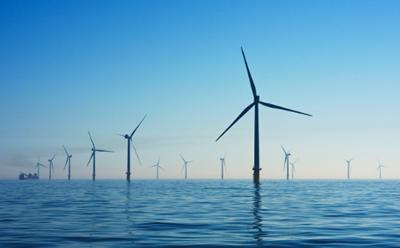Surge in offshore wind turbines signals key moment to ‘reimagine how we work with the ocean’

A leading expert in ocean engineering at the University of Southampton has underlined the need for ecological awareness and technological innovation during the dramatic expansion of offshore wind power over the coming decade.
Writing in The Conversation, Professor Susan Gourvenec and co-author Dr Rebecca Sykes highlight that everything we engineer, whether it’s clothes, mobile phones or offshore wind turbines, needs resources from Earth’s biological and physical systems. These are taken, made into these things we use every day and then - to varying degrees - discarded as waste. The article warns that this way of exploiting nature is outstripping its ability to recover.
The engineers pose the question, “What if, as well as building useful infrastructure for society, engineers sought to tie their work into ecological processes? We would need to shift our thinking from simply limiting damage to the natural world, to including its needs, so that we reciprocate and support the natural world as it supports us, and help regenerate these natural systems.”
“The world needs more wind turbines, and fast, but clearly, the environmental and social consequences of making and installing them reduces some of their positive potential,” they add. “Currently, the most ambitious designs seek to minimise these negative impacts. Can we think deeper?”
The UK is planning to install 40 gigawatts of offshore wind power by 2030 – enough to provide electricity to every home in the country. This would require 5,000 wind turbines – double the number installed offshore worldwide at the end of 2020.
Professor Gourvenec is Royal Academy of Engineering Chair in Emerging Technologies – Intelligent & Resilient Ocean Engineering (IROE) and Deputy Director of the Southampton Marine & Maritime Institute (SMMI), while Dr Sykes is an Adjunct Research Fellow with IROE and SMMI. The researchers urge readers to “shift our thinking from simply limiting damage to the natural world, to including its needs, so that we reciprocate and support the natural world as it supports us, and help regenerate these natural systems”.
“Ocean engineers must think ecologically to help species live and evolve through the difficult decades ahead,” they say. “We will need to challenge the status quo, be open to collaboration and reimagine how we can work with the ocean.”
Read the full article on The Conversation website.
This article forms part of The Conversation’s Oceans21 Series, a feature series to mark the run up to COP26.